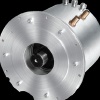Индустриален клъстер "Електромобили" - Учредители:








 |

|

|
| Актуално | За клъстера | Екип | Членове | Документи | Анализи | Услуги | Стани член | Награди | ССЕМ | Контакти |
ИКЕМ - Индустриален клъстер "Електромобили" | Понеделник, 02.02.2026 | |
|
Energy consumption, CO2 emissions and other considerations related to Battery Electric Vehicles
1. Summary and Conclusions
1.1 Electric vehicles consume less energy than fossil fuel vehicles.
1.2 Electric vehicles generate significantly less CO2 than fossil fuel vehicles.
1.3 Electric vehicles will generally be smaller and lighter and therefore even cleaner and In addition, the small size of electric cars will help reducing congestion on roads and in car parks. |
Продукти 
Комплектна система за задвижване на електромобилиСистемата за електрозадвижване обхваща гама с три основни типоразмера на ел. мощност със съответните компоненти - електромотор и контролер. oще ...Виж всички продуктиАнкета с продължение...
|
|
|
 ЕВРОПЕЙСКИ СЪЮЗ Европейски фонд за регионално развитие Инвестираме във вашето бъдеще |
 |
 ОПЕРАТИВНА ПРОГРАМА „Развитие на конкурентоспособността на българската икономика” 2007-2013 www.opcompetitiveness.bg |
|
Интернет страницата е създадена с финансовата подкрепа на ЕФРР, в рамките на проект „Развитие на Индустриален Клъстер Електромобили” по ДБФП К-02-2/28.09.2011 г. |
|||